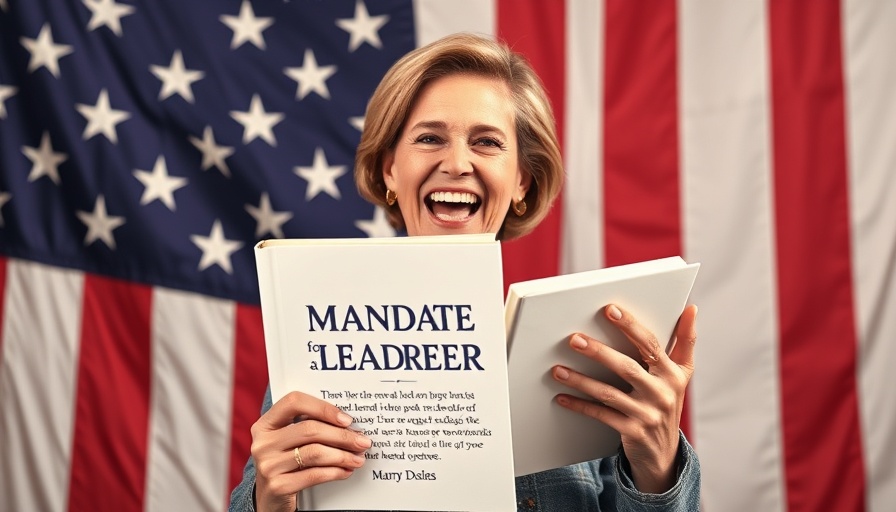
Democratic Party and Public Perception: A Crucial Intersection
In recent weeks, the commentary surrounding the Democratic Party’s media engagement techniques has intensified, especially as new candidates enter the political landscape. A notable voice is Patricia Axelrod, a Democratic U.S. Senate hopeful from New York. During her public discussions, she asserted that the party’s decision to nix an interview with podcaster Joe Rogan reflects deeper issues within the party, contributing to a growing public discontent that could drive voters away.
Understanding the Rogan Dilemma
Rogan, known for his popular podcast and varied range of guests, prompts conversations that often stray from traditional political narratives. Axelrod argues that avoiding exposure on platforms like Rogan’s risks alienating younger voters, a demographic crucial for the party's future. She argues, "Canceling Rogan isn’t just about one interview; it’s symbolic of how we’re failing to engage with diverse viewpoints. People crave authenticity and dialogue, not dismissal." Her assertion raises questions about the party's overall strategy in communicating with a broad electorate.
The Fallout of Avoidance: A Generational Divide
Critics within his own party are beginning to echo Axelrod's sentiments, pointing to a generational divide in the perception of authenticity in political discourse. Older Democratic leaders often gravitate towards more traditional media engagements, while younger voters are seeking unfiltered, genuine discussions. In contrast to the narrative of avoidance, platforms like Rogan's can offer an opportunity for politicians to expand their reach and foster a sense of realness. As Axelrod emphasizes, "When leaders shy away from these conversations, it forms a disconnect. It’s a missed opportunity to address the issues voters truly care about, such as climate change and social justice."
Public Engagement Trends: What Does the Data Say?
Recent surveys show that nearly 70% of young voters believe politicians should engage with non-traditional media personas. This sentiment echoes Axelrod's concerns and indicates that moving forward, Democrats may need to reassess their media strategies. For instance, a Pew Research Center study highlights the rising influence of informal media on voter decision-making, indicating that 65% of Americans follow news sources outside of traditional platforms. This indicates a shift in trust from long-standing news outlets to emerging platforms that prioritize dialogue and entertainment.
Looking Ahead: The Future of Political Engagement
As the 2024 election looms, it's apparent political landscapes are changing rapidly. The need for dialogue, inclusivity, and engagement on unconventional platforms could dictate which candidates resonate with key demographics. Axelrod's perspective offers insight into necessary adjustments the Democratic Party must consider to regain the trust of disillusioned voters. The challenge lies in marrying traditional political strategies with modern media practices to foster a more inclusive political conversation.
Succumbing to Pressure: The Risks of Ignoring This Trend
Ignoring the relevance of platforms like Rogan's podcast could have dire consequences for Democratic candidates. As Axelrod astutely observes, "People are fed up with being censored or only hearing one side of the story. This is why there’s a shift in public sentiment against our party. We need to create an environment where multiple voices are welcome, even if they challenge our beliefs." By ignoring wider discussions, politicians risk entrenching themselves in echo chambers.
Conclusion: Take Action for Engagement
Patricia Axelrod’s critique of the Democratic Party's media strategy serves as a powerful reminder of the importance of engaging with a diverse array of viewpoints, especially among the younger electorate. As the conversation continues to evolve, it becomes increasingly vital for political figures to adapt to the changing dynamics of media and public engagement. For voters seeking a more inclusive political platform, staying informed about candidates’ stances on media engagement can shape their electoral choices. Engage with the conversation and let your voice be heard—our democracy thrives on dialogue.
 Add Element
Add Element  Add Row
Add Row 



 Add Row
Add Row  Add
Add 


Write A Comment